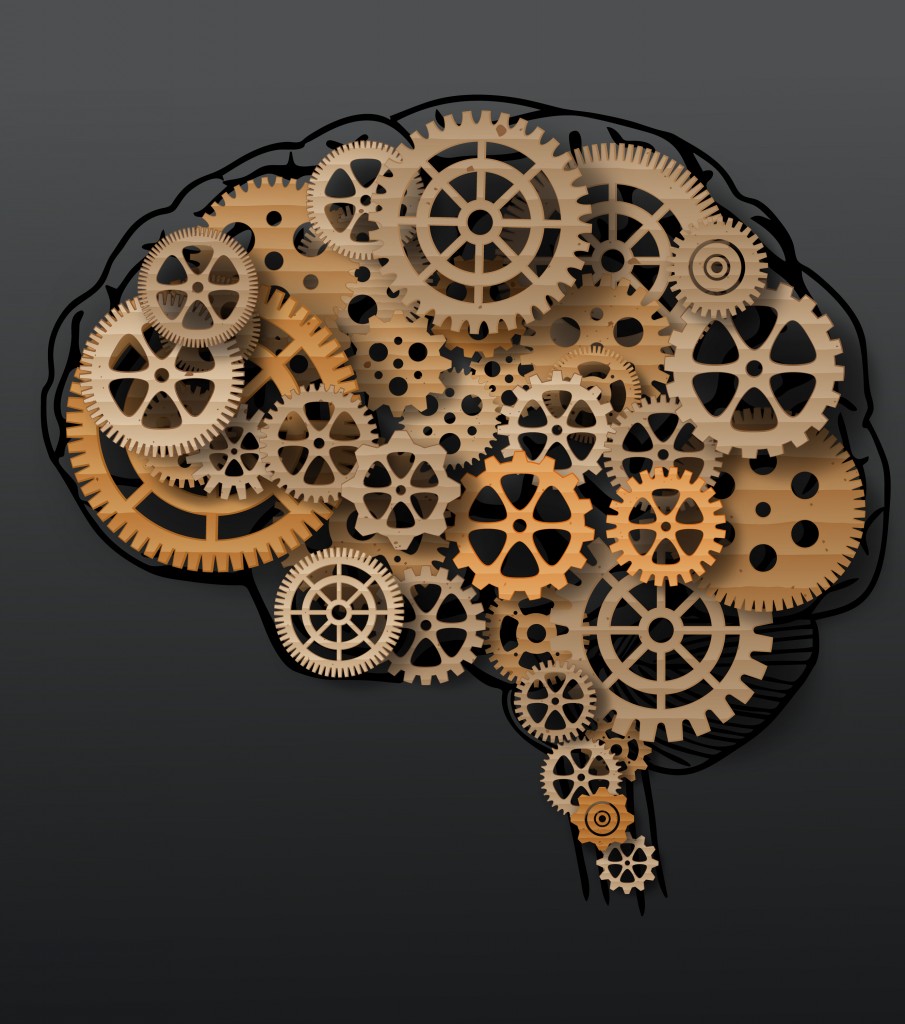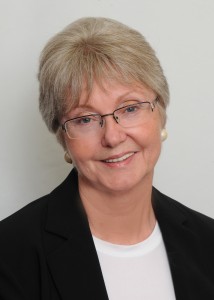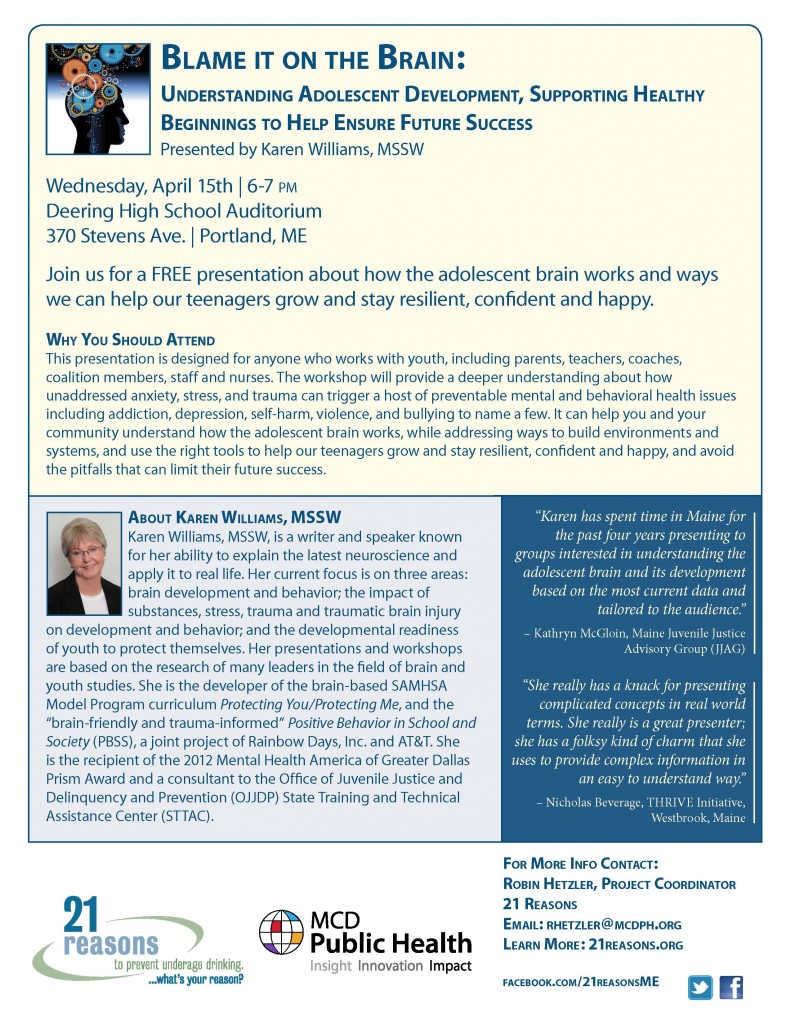Did you know? It takes a minimum of 25 years to build a basic brain. And we all play a role in shaping the adolescent brain.
Next month, the group 21 Reasons is hosting a free presentation about the adolescent brain at Deering High School. 21 Reasons is a coalition of individuals, organizations and businesses dedicated to preventing underage drinking.
The presentation is called Blame it on the Brain and is for parents and anyone who works with youth. The wisdom I’m about to share comes from the speaker, Karen Williams. She was very careful to tell me that she’s not a researcher or a doctor. She is a social worker whose specialty is making research easy to understand and use.
To begin, she says our brains are all wired a certain way, but that experiences also play an important role in building the brain.
When we’re between the ages of about 12 and 16, the part of the brain that’s in charge of thinking, learning and controlling undergoes a massive reorganization. The changes are in addition to puberty. Which means everything that happens in the teen years is not all about raging hormones. Karen says that it is vital to understand that during adolescence, the childhood brain suddenly goes away — it’s as if someone hit the reset button!
A teen’s brain is wired for three things
• Power
• Purpose
• Partnership
Anyone who can offer all three will get a teen’s allegiance — which is why it’s critical that at least one caring adult does — in a positive way.
Teens who have difficult lives, who don’t have involved caring adults, are at highest risk for veering off the path and harming themselves or others.
The goal of the workshop is to provide a deeper understanding about how anxiety, stress and trauma can trigger all kinds of preventable mental and behavioral health issues, including addiction, depression, self-harm, violence and bullying.
It will also provide some helpful tools and advice.
Karen is also going to be on tour for that entire week and will be speaking in several communities. In addition to Deering High, three other free presentations will be open to the public:
Monday April 13th
8:00 to 9:00 am (geared toward professionals)
Lincoln Health-Miles Campus|Miles Hospital Boardroom
35 Miles Street | Damariscotta
5:30 to 6:30 pm (geared toward parents and other community members)
Central Lincoln County YMCA
525 Main Street | Damariscotta
Tuesday April 14th
6:00 to 7:00 pm
Mountain Valley High School | Muskie Auditorium
799 Hancock Street | Rumford
Wednesday April 15th
6:00 to 7:00 pm
Deering High School Auditorium
370 Stevens Avenue | Portland
For more information:
Damariscotta: Contact Brenda Hamilton, Director of Healthy Lincoln County, by email.
Rumford: Contact Allie Burke, Program Manager of River Valley Rising, by email
or Kelsey Arsenault, Program Coordinator, by email.
Portland: Contact Robin Hetzler, Project Coordinator for 21 Reasons, at 207-773-7737 or by email.




I think you could write about how children with SEN struggle to conform in a society and display challenging behaviour as part of their traits . And that although patterns need to teach and guide children to learn excrptable behaviour firstly they should acknowledge it’s part of the child’s communication when scared or security is threatened . Maybe then your book can help educate teachers and parents with children with SEN to support their children in a different way rather than exclude children with Sen . Or stop parents feeling the jobs impossible to achieve or make the parent feel their parenting is questionable. I can’t tell you how many parents in the Sen groups write despairing letters.
Regards Andrea Phillips.